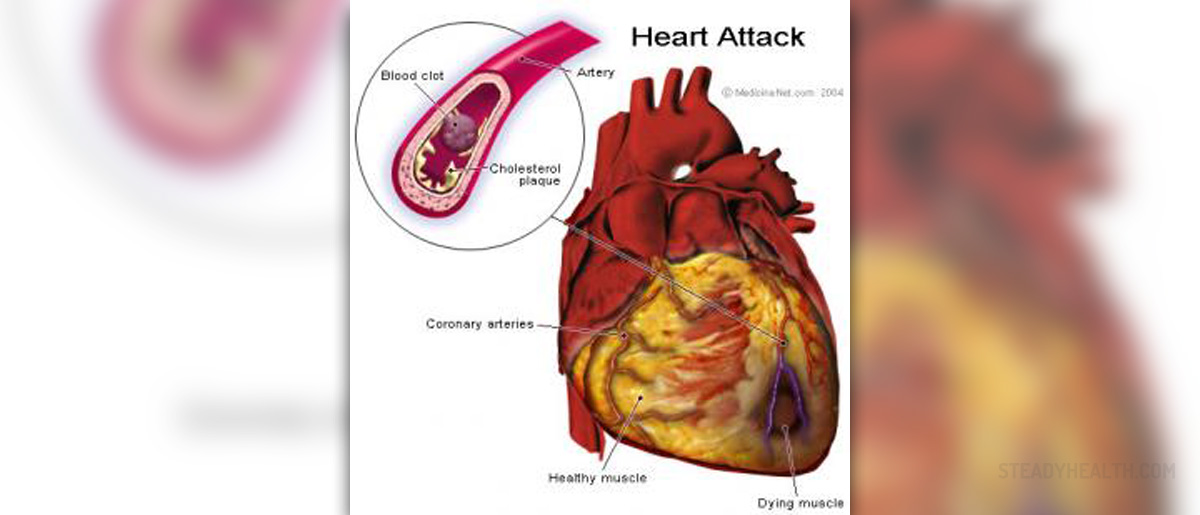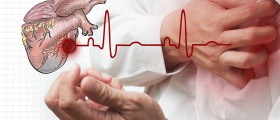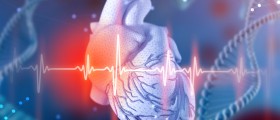
Mild Heart Attack
Mild heart attack is commonly known as unstable angina. The leading cause of mild heart attack is connected to insufficient supply of the heart with oxygen. It occurs as a consequence of blockage of coronary vessels. The goal of the treatment is to prevent serious damage to the heart and resulting heart conditions.
Mild Heart Attack - Causes and Symptoms
Mild heart attack may occur due to physical or emotional stress. It also affects people who have recently suffered from viral infections such as common cold. It may also occur after heavy meals.
The typical symptom of mild heart attack is pain in the left part of the chest. The pain may radiate towards ipsilateral arm, neck, upper back and jaw. Patients additionally complain about difficulties with breathing, excessive perspiration, and weakness.
In the very beginning of mild heart attack the symptoms actually resemble those which occur in angina. Still, in angina all the symptoms tend to withdraw in 10-15 minutes especially if a patient takes certain medications. In heart attack the symptoms and signs of the disease do not withdraw even if person lies down or take medications.
Mild Heart Attack Diagnosis
It is important to establish the diagnosis as soon as possible and to treat patients timely so that the damage to the heart can be significantly reduced. EKG is obligatory and it always shows specific changes characteristic for heart attack. Additional test includes the presence of the heart enzymes in the blood which typically happens if heart cells have been damaged.
Treatment for Mild Heart Attack
The treatment for mild heart attack is based on the condition of the heart and it also depends on comorbidities.
Nitroglycerin is typically used in mild heart attack. It induces vasodilatation of cardiac blood vessels and enhances the supply of the heart with oxygen. It can be used in a form of tablet which is put under the tongue or as a spray which is easily sprayed into the mouth and absorbed quickly. Nitroglycerin is used in case that pain lasts longer than two minutes. Beta blockers are also used in mild heart attack. In patients who cannot properly recover after mild heart attack a doctor may advise angioplasty or bypass surgery. These surgical procedures increase the supply with oxygen.
After the heart attack patients may be prescribed Aspirin. It prevents hypercoagulation of the blood reducing the chance of subsequent heart attacks. Patients who are suffering from high levels of cholesterol are prescribed special medications which bring level of cholesterol under control. Diabetics are recommended to maintain the healthy level of blood sugar.
What is crucial for all the patients is to change their life styles and get rid of all the bad habits such as smoking and alcohol consumption. Dietary changes as well as light physical activity may be effective in prevention of further heart attacks.

















Your thoughts on this
Loading...